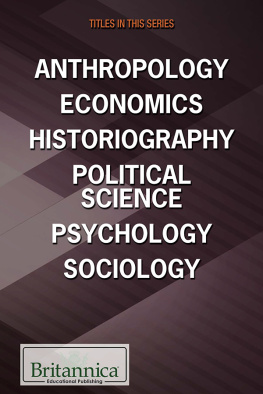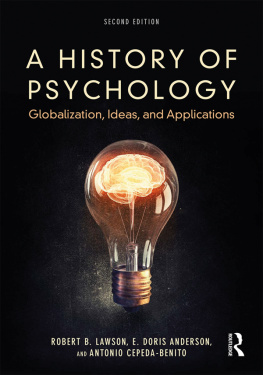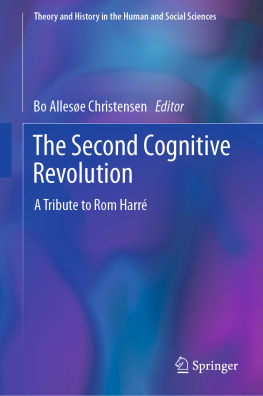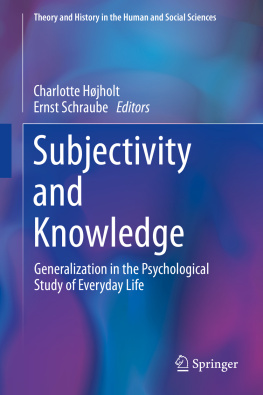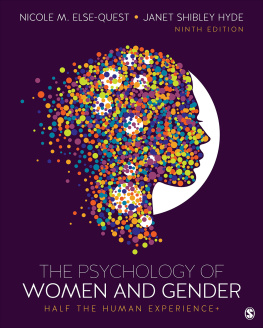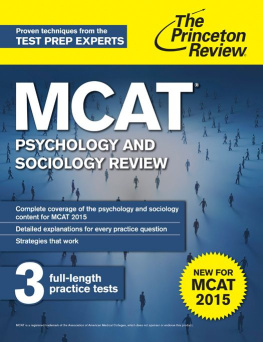Psychology Without Foundations
Psychology Without Foundations
History, Philosophy and Psychosocial Theory
Steven D. Brown and Paul Stenner

Steven D. Brown and Paul Stenner 2009
First published 2009
Apart from any fair dealing for the purposes of research or private study, or criticism or review, as permitted under the Copyright, Designs and Patents Act, 1988, this publication may be reproduced, stored or transmitted in any form, or by any means, only with the prior permission in writing of the publishers, or in the case of reprographic reproduction, in accordance with the terms of licences issued by the Copyright Licensing Agency. Enquiries concerning reproduction outside those terms should be sent to the publishers.
SAGE Publications Ltd
1 Olivers Yard
55 City Road
London EC1Y 1SP
SAGE Publications Inc.
2455 Teller Road
Thousand Oaks, California 91320
SAGE Publications India Pvt Ltd
B 1/I 1 Mohan Cooperative Industrial Area
Mathura Road, Post Bag 7
New Delhi 110 044
SAGE Publications Asia-Pacific Pte Ltd
33 Pekin Street #02-01
Far East Square
Singapore 048763
Library of Congress Control Number: 2008938915
British Library Cataloguing in Publication data
A catalogue record for this book is available from the British Library
ISBN 978-0-7619-7226-6
ISBN 978-0-7619-7227-3 (pbk)
Typeset by C&M Digitals (P) Ltd, Chennai, India
Printed in India at Replika Press Pvt Ltd
Printed on paper from sustainable resources
We dedicate this book to Ailbhe, Ezra, Kittie and Anna: XoX
Psychology Without Foundations offers a range of philosophical and theoretical resources that contribute to a vision of psychology as a transdiscipline. The guiding theme is that we need to rethink our relationship to foundations and to affirm the paradox that foundations must be continually self-constructed. A case is made for a reflexive or creative (non)foundationalism that might give rise to a psychology of the second order. The psychological resists any easy determination. We must seek an image of the psychological as it appears across the most diverse of terrains. To this end the book assembles a range of thinkers who share an orientation to reality as multiply mediated process or becoming.
Following an introductory chapter, the philosophies of Alfred North Whitehead and Michel Serres are drawn upon to introduce these twin concepts of process and mediation. Each of the subsequent six chapters takes a key thinker as a guide to an important psychological topic. These include Niklas Luhmann (on communication); Antonin Artaud (on embodiment); Baruch Spinoza (on affect); Henri Bergson (on memory); Michel Foucault (on subjectivity) and Gilles Deleuze (on life). A final chapter proposes a concept of experience based on the relations between power (or affect), image (or percept), proposition (or concept) and enunciation (or discourse) in order to make the arts of existence or the art of living the central object of psychology. The book is envisaged as a work of assemblage rather than systematisation and as an intervention into the current impasse between critical psychology and the mainstream.
This book has been long in preparation. In fact, since we began working on it a series of events has flowed under the bridge. We have moved through four jobs (Paul from the University of Bath to University College London and then to the University of Brighton, Steve from Keele University to Loughborough University to the University of Leicester); moved house four times; had three children (two for Paul and one for Steve); and both of us have turned 40... We therefore have more people to thank than we could possibly acknowledge here, including various employees of Sage Publications who have patiently fielded our various requests for extensions (special thanks to Michael Carmichael and Sophie Hine).
Thanks also to those who kindly read through drafts of various chapters or who otherwise offered support, inspiration and criticism (including Matt Allien, Casper Bruun Jensen, Mark Egan, Ros Gill, Lewis Goodings, Monica Greco, Paul Hanna, Paula Reavey, Carlos Silva, Derek Stenner)
Paul would like to thank Gnther Teubner, the Alexander von Humboldt Foundation, and the Leverhulme Trust for enabling a year in Frankfurt that challenged him to engage with some of the more philosophical aspects of psychology, and also Axel Honneth, Tilman Habermas, Ute Osterkamp and Dimitris Papadopoulos for your unexpected hospitality and thought-food.
Steve would like to thank his former colleagues across the way in Social Sciences at Loughborough for their good training, especially Malcolm Ashmore who finds himself included here; his new colleagues at Leicester for their support and loveliness; SPEDO survivors John Cromby, Darren Ellis, Lewis Goodings, Harriet Gross, Abi Locke, Johanna Motzkau, Ian Tucker; and especially Dave Middleton, Hugo Letiche and Paula Reavey for support, friendship and more.
includes elements of Stenner, P. (2007). Non-foundational criticality? On the need for a process ontology of the psychosocial. Outlines, Critical Social Studies, 9(2), 4455; and Stenner, P. (2008). A.N. Whitehead and subjectivity, Subjectivity, 22, 90109.
; Brown, S.D. (2002). Michel Serres: science, translation and the logic of the parasite. Theory, Culture & Society, 19(3), 127; and Brown, S.D. (2004). Parasite logic. Journal of Organisational Change Management, 17(4), 383395.
includes elements of Brown, S.D. (2007). After power: Artaud and the theatre of cruelty. In C. Jones & R. ten Bos (Eds.), Philosophy and organization (pp. 201223). London: Routledge; and Brown, S.D. (2005). Collective emotions: Artaud's nerves. Culture & Organization, 11(4), 235246.
includes elements of Brown, S.D. & Stenner. P. (2001). Being affected: Spinoza and the psychology of emotion. International Journal of Group Tensions, 30(1), 81105.
includes elements of Ashmore, M., Brown, S.D., & MacMillan, K. (2005). Lost in the mall with Mesmer and Wundt: demarcation and demonstration in the psychologies. Science, Technology & Human Values, 30(1), 76110; and Middleton, D. & Brown, S.D. (2005). The social psychology of experience: studies in remembering and forgetting. London: Sage.
Publishers Acknowledgements
The authors and publishers wish to thank the following for permission to use copyright material:
We thank the Department of Psychology at the University of Copenhagen and the University Press of Southern Denmark for permission to reproduce elements of Stenner, P. (2007). Non-foundational criticality? On the need for a process ontology of the psychosocial. Outlines, Critical Social Studies, 9(2): 4455.
We thank Elsevier for permission to reproduce the opening quotation to . Reprinted from Ashmore, M., MacMillan, K., & Brown, S. D. (2004). Its a scream: professional hearing and tape fetishism. Journal of Pragmatics, 36(2): 349374.
We thank Emerald for permission to reproduce elements of Brown, S.D. (2004). Parasite logic. Journal of Organisational Change Management, 17(4): 383395.
We thank Imprint Academic for permission to reproduce elements of Stenner, P. (2006). An outline of an autopoietic systems approach to emotion.
Next page


